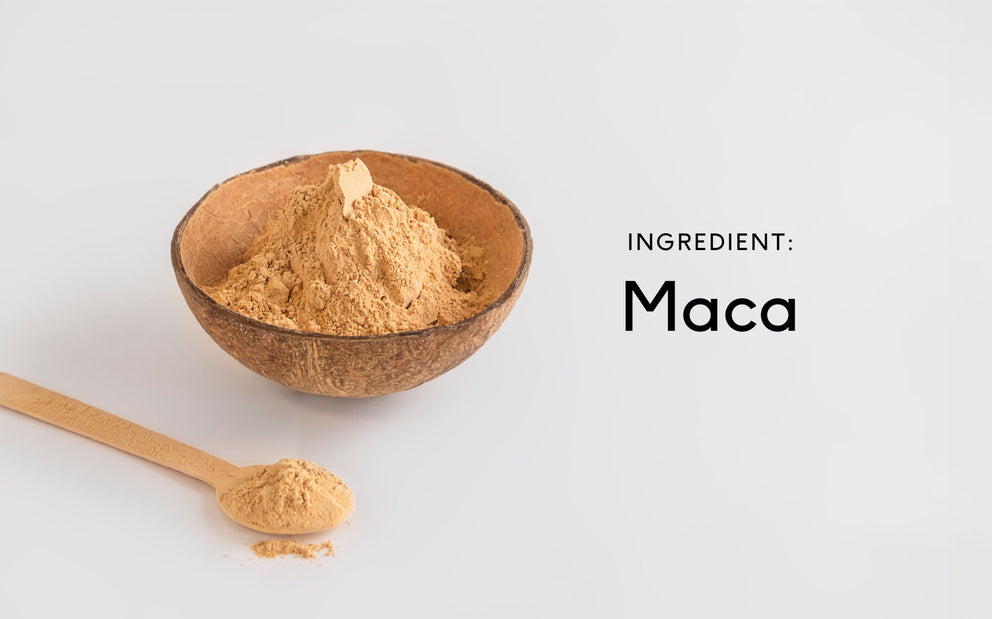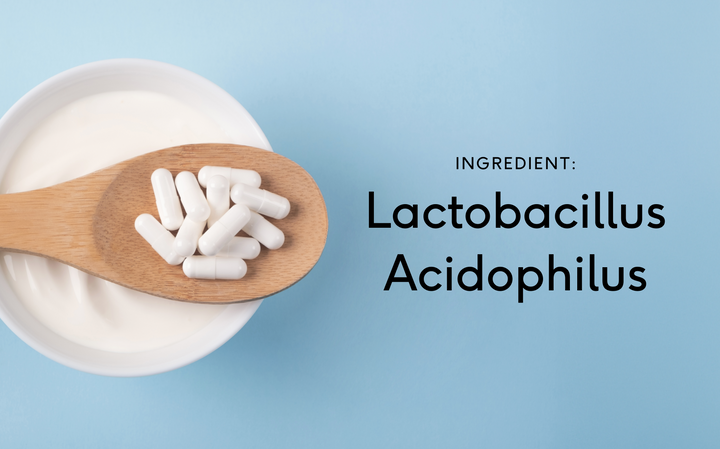What is Maca: Benefits, Risks, How to use. [2025 Nutritionist Reviewed]
Lara is a Registered Nutritional Therapist and founder of Nutrition for Vitality and the 28-Day Hormone Makeover online programme. She is an experienced practitioner, with a particular interest in female health and hormone balancing, weight management and weight loss resistance, gut health, chronic fatigue, and fibromyalgia.
Lara is a Registered Nutritional Therapist and founder of Nutrition for Vitality and the 28-Day Hormone Makeover online programme. She is an experienced practitioner, with a particular interest in female health and hormone balancing, weight management and weight loss resistance, gut health, chronic fatigue, and fibromyalgia.
Table of contents

| Ingredient name | Maca |
| The ingredient is also known as | Lepidium meyenii, Peruvian ginseng |
| Available Maca forms | Yellow Maca, Red Maca, Black Maca |
| Possible Bioavailability | High |
| Water-soluble or Fat-soluble | Water-soluble |
| Health benefits associated with Maca | Fertility, vitality, increased energy, lower blood pressure, improved menopausal symptoms, antioxidant, anti-inflammatory, improved mood, anti-depressant. May also improve libido. |
| Year ingredient discovered | At least 2000 years ago |
| Maca mostly used in | Juices, soups, stews (traditionally), supplements and as a powder added to smoothies |
| Recommended dose | Depends on use. 5g per day have been used in clinical trials |
| Daily reference intake | N/A |
| Does the human body produce this ingredient | No |
| The half-life of Maca | 7-8 hours |
| Signs of Maca deficiency | N/A |
1. Overview: What is Maca?
Maca, also known as Peruvian ginseng, or scientifically as Lepidium meyenii, is a cruciferous vegetable, related to radish, broccoli and turnips. It is native to the Andes mountains of Peru1 where it has been cultivated for centuries by indigenous people 2, who have traditionally used it to aid vitality and fertility, in themselves and their livestock3.
Maca is considered an adaptogen - a plant that can be consumed to help the body combat stress. Adaptogens often grow in harsh conditions, it’s thought to be how they get their strength which is passed to those who eat it. Maca is no exception, it is found growing at high altitudes, where weather conditions are extreme and few other plants survive2.
Maca is an incredibly nutritious superfood thought to have numerous health benefits. Not only is it high in fibre, it is rich in essential amino acids, fatty acids, vitamin C, copper, iron and calcium2. It’s said to smell and taste like butterscotch4.
2. What forms of Maca are there?
Maca is a root which comes in different colours2. Yellow Maca is the most common at 60% of production and is most widely used and researched. Red Maca makes up 25% of the harvest, and Black Maca 15%. It’s thought that different colours provide different health benefits.
3. What is Maca made from?
Maca is a plant; its stems are boiled and used by indigenous Peruvians in juices and cooked into soups and stews2.
Maca root is used to make maca supplements2. It is ground into a powder, which can be taken in a smoothie, or used as a flour. Maca extract is used in pills or capsules.
Synthetic forms of Maca may also be found, made in China. These are of poorer quality than natural Peruvian Maca.
4. What does Maca do?
Maca is a root vegetable with an impressive nutritional status, much better than other root vegetables like potatoes or turnips, and more aligned to that of whole grains. As well as being rich in fibre, it is relatively high in protein with a good level of essential amino acids, a source of beneficial fatty acids, and nutrients including Vitamins B and C, iron, calcium, zinc, magnesium and copper2. It’s been shown to have good antioxidant status, have anti-inflammatory properties, and a number of beneficial health effects including aiding vitality, sexual health, and menopausal symptoms, and protecting against cancer, high blood pressure and inflammation2. Traditionally in Peru it is boiled, which seems to increase the active metabolites that make it beneficial for health5.
5. What is the function of Maca supplements?
Maca powder may be taken as a supplement for support with a range of health conditions. It’s been shown to potentially help with sexual dysfunction, improve sperm count, have neuroprotective effects, aid memory and learning, act as an antidepressant, and has antioxidant and anti-inflammatory properties, in addition to providing energy2. It should be noted that Maca should be used as a complementary supplement, not in place of your prescription medication, and you should always go with your doctor’s medical advice.
6. What is Maca used for?
Maca has been used as a health food by indigenous people of Peru for centuries3. Traditionally it was used to aid vitality and fertility, not only in people but also in their livestock3. In China it is used as a medication in traditional Chinese medicine where it is considered to have a warming action, beneficial to the spleen6. More recently it has been growing in popularity in the West, particularly amongst postmenopausal women and people suffering with infertility and sexual dysfunction issues.
7. Is Maca effective?
Some scientific evidence is available which backs up the use of Maca for its health benefits. Two of the main researchers into the topic are Gustavo Gonzales and Manuel Gasco of the Cayetano Heredia Peruvian University, Peru. With their colleagues, they carried out numerous animal studies to investigate the potential benefits of Maca. They found Maca increased sperm production in rats7,8, red Maca reduced rats’ prostate size9, and black Maca could reverse the effect of ethanol induced memory impairment in mice.
Later they went on to investigate the use of Maca in humans. A randomized, double-blind, placebo-controlled study11 investigated various potential health benefits of Maca by giving participants 3g of black maca, red maca or a placebo daily for 12 weeks. The groups taking black Maca or red Maca improved their scores on health-related quality of life questionnaires and their moods improved. Red Maca was found to be particularly beneficial for mood as well as improving energy levels and reducing mountain sickness, while black Maca was found to reduce blood glucose levels.
A review summarizing the results of various studies was carried out by Gonzales, Gasco and colleagues12. They concluded that Maca’s benefits included sperm production, aiding memory and fatigue, reversal of benign prostatic hyperplasia and experimentally induced osteoporosis, reduction of glucose levels and an improvement in overall health scores.
On the other hand, systematic reviews of clinical trials carried out by others into use of Maca for sexual function13, menopausal symptoms14 and semen quality15 have all concluded that further scientific investigation is needed.
8. How to take Maca?
Maca powder can be blended into a smoothie, or you can take maca supplements in the form of pills or capsules.
9. How long does it take for Maca to work?
No supplement will work instantly, you should always take them regularly for a period of time in order to gain the beneficial effects. Maca has been found to work relatively quickly, with effects seen after just two weeks in some studies5, while others have taken a number of months. It’s a good idea to discuss your specific requirements with a nutritionist or healthcare professional.
10. How long does it take for your body to absorb Maca?
Maca is a water-soluble substance and therefore should take around 24 hours to be absorbed by the body.
11. Maca for Sexual Function
Improvement of sexual function is one of the main traditional uses of Maca in Peru; indigenous people have used it both on themselves and their animals as a natural aphrodisiac and for infertility for centuries3.
A systematic review of the use of Maca for sexual function, carried out in 2010 concluded that the evidence is too limited to come to firm conclusions and that further study is required13. Gonzales on the other hand disagrees with the researchers’ conclusions, noting that in fact there is some good evidence in favour of Maca’s use in this area5.
Numerous animal studies carried out by Gonzales, Gasco, and colleagues found Maca could improve sperm concentration7,8 and a more recent human study backed up this claim16.
Clinical trials have also found that Maca may improve sexual wellbeing, sexual dysfunction and sex drive. A randomized double-blind clinical trial was carried out on men affected by erectile dysfunction17. After 12 weeks, the men given Maca extract showed a small but significant improvement in general and sexual well-being when compared to the placebo group.
Another study by Gonzales and colleagues investigated the effect of Maca on serum testosterone levels18. Testosterone levels were no higher than placebo, however the participants were found to have improved levels of sexual desire after 8 weeks.
And a clinical trial investigating sexual dysfunction brought on by SSRI anti-depressant drugs found that Maca may alleviate this in patients as well as having a beneficial effect on libido19.
12. Maca for Menopause
Maca as a remedy for the symptoms of menopause is another traditional use of the plant in Peru20, 21.
A systematic review of trials into the use of Maca for the treatment of menopausal symptoms concluded that there was not enough evidence to draw firm conclusions14. However again there has in fact been evidence-based research carried out to back up claims.
One double-blind randomized trial investigated the use of pre-gelatinized Maca on perimenopausal women20. Hormone levels were measured including estrogen and other sex hormones, as well as thyroid hormones, lipid profiles, body weight, blood pressure, and menopausal symptoms. After 2 months, the women experienced a significant reduction in symptoms, and this was associated with improved hormone levels and lipid levels, as well as weight loss, and reduced blood pressure, suggesting that Maca may even provide an alternative to HRT medication commonly prescribed for menopause.
Maca may be beneficial to postmenopausal women too. A clinical trial found that women in this group who were given Maca had reduced psychological symptoms including anxiety, depression and sexual dysfunction associated with the postmenopausal stage22. A study in China found that postmenopausal women consuming Maca had lower levels of blood pressure and depression compared to placebo21. And another study found that early-postmenopausal women who were given gelatinized Maca root powder for 8 months, had improved ovarian hormone levels, energy levels, and sex drive, along with reduced symptoms of hot flashes and nervousness23.
13. Maca for Energy and Performance
Maca is considered an adaptogen. It has the ability to thrive in conditions where very few other plants can survive, at high altitudes and in extreme weather conditions2. It is thought that this is what gives Maca its strength and as with other adaptogens, it is this strength that is passed to people and animals when it is consumed, giving it its reputation for promoting vitality amongst those who eat it. And science again backs this up. Mice were found to be able to swim faster and for longer after Maca consumption24. Increased energy levels were one of the findings when Gonzales and Gasco compared people eating Maca extract with a placebo11. And a Peruvian football team based in the high altitude city of Cusco improved their performance by over 10% when they took Maca2.
14. Maca for Mental Health and Brain Health
Maca has been traditionally given to school children in Peru to aid their learning5, and animal studies by Gonzales and Gasco have provided evidence-based research to back up this use, since mice were shown to exhibit enhanced memory and learning skills after consuming Maca10. Another study carried out in America suggested that Maca may be beneficial to stroke patients, since rats suffering from stroke showed improvement following administration of Maca extract25.
Gonzales and Gasco’s human trial showed that both red and black Maca extract improved mood and they found GABA on extracts of red Maca11, that’s the neurotransmitter in the brain that helps us to relax. Since Maca is an adaptogen it may also be useful in combatting stress26.
15. Maca for Diabetes
Maca may be useful in the prevention and treatment of diabetes. Diabetic rats who were fed Maca flour had reduced blood glucose levels compared to the control group who were treated with drugs2. And black Maca in particular was found to reduce blood glucose levels in healthy adults11.
16 . Maca for General Health
Stress in any form can take a big toll on our health, and scientists consider an ability to cope with stress a factor in whether or not disease states will develop27. Since Maca is an adaptogen, it may be able to help us deal with stress better, therefore having a positive effect on our general health and wellbeing. And in fact, as we have seen, studies have found that Peruvians regularly consuming Maca score better on health-related quality of life questionnaires than those who don’t11, 28.
Chronic inflammation is another factor known to contribute to many disease states, including heart disease, liver disease, gut issues, amongst many others27. Peruvians regularly consuming Maca were found to have lower levels of interleukin-628, an inflammatory marker, suggesting that Maca is an anti-inflammatory, and may therefore be beneficial to health.
Maca has also been found to lower blood pressure5, 12, 21, a cardiovascular disease risk factor.
17. How much Maca do I need to take to feel the benefits?
The amount of Maca you need to take will depend on the health condition you are hoping to support. It is typically used in doses of 1.5 to 3.5mg daily for 6-16 weeks29, and has been used in trials in doses of anything up to 5g. It is a good idea to seek advice from a nutritionist or healthcare professional to find out the best dose for you.
18. What are the side effects of Maca?
Maca has been found to be well tolerated with low levels of adverse effects2, 5, 11.
19. What are the signs of Maca deficiency?
Maca is not an essential nutrient that you can be deficient in, it is an additional aid to the body.
20. What are the risks associated and warnings with taking Maca?
Indigenous people of Peru claim that maca should always be boiled before use, but this has not been investigated scientifically5. More recently with an increase in scientific research into the plant’s health benefits there have been some concerns expressed over potential toxicity but it has generally found to be safe2, 5, 11, unless exceptionally large doses are consumed5.
Like other herbal products, it’s best to avoid supplemental levels of Maca if you are pregnant or breast-feeding since there is not enough evidence to determine its safety29.
It’s also advised to avoid Maca if you have a hormone sensitive condition like breast or ovarian cancer, endometriosis or uterine fibroids29. That’s because Maca can act in a similar way to estrogen in the body, which may potentially make these conditions worse.
21. What is a good Maca supplement?
If you are looking for a Maca supplement, you should ensure it is authentic Peruvian Maca. Synthetic Maca is also produced in China but this is poor quality and will not have the same health benefits.
Maca can be bought as a powder to be mixed into smoothies. Some people don’t like the taste and prefer to take it in a pill or capsule form.
You may come across Maca in supplements combined with other nutrients or other adaptogenic herbs, aimed at supporting specific health conditions. In fact this is a good thing as it has been found that combining more than one adaptogen may increase their efficacy30. Feel’s Menopause is an example of this, which combines Maca with other adaptogens and nutrients to specifically target menopausal symptoms.
22. Where can I buy Maca?
You can buy Maca powder and supplements in health food stores, or from reputable sellers online like Feel.
23. Interactions and contraindications when taking Maca
Maca is not known to interact with any prescription drugs, however if you are taking any medications, it’s a good idea to seek medical advice from a nutritionist or healthcare professional before taking Maca or any other supplement.
References
- https://pubmed.ncbi.nlm.nih.gov/25668332/
- https://pubs.rsc.org/en/content/articlehtml/2020/fo/c9fo02732g
- https://www.sciencedirect.com/science/article/pii/S0308814602001334
- https://examine.com/supplements/maca/
- https://pubmed.ncbi.nlm.nih.gov/21977053/
- https://eurjmedres.biomedcentral.com/articles/10.1186/s40001-020-00420-7
- https://pubmed.ncbi.nlm.nih.gov/14695987/
- https://pubmed.ncbi.nlm.nih.gov/14709147/
- https://pubmed.ncbi.nlm.nih.gov/15661081/
- https://pubmed.ncbi.nlm.nih.gov/21780878/
- https://pubmed.ncbi.nlm.nih.gov/27548190/
- https://pubmed.ncbi.nlm.nih.gov/24718534/
- https://pubmed.ncbi.nlm.nih.gov/20691074/
- https://pubmed.ncbi.nlm.nih.gov/21840656/
- https://pubmed.ncbi.nlm.nih.gov/27621241/
- https://pubmed.ncbi.nlm.nih.gov/32654242/
- https://pubmed.ncbi.nlm.nih.gov/19260845/
- https://pubmed.ncbi.nlm.nih.gov/12472620/
- https://pubmed.ncbi.nlm.nih.gov/18801111/
- https://www.ncbi.nlm.nih.gov/pmc/articles/PMC3614596/
- https://pubmed.ncbi.nlm.nih.gov/24931003/
- https://pubmed.ncbi.nlm.nih.gov/18784609/
- https://www.ncbi.nlm.nih.gov/pmc/articles/PMC3614576/
- https://ift.onlinelibrary.wiley.com/doi/10.1111/1750-3841.13619
- https://nyaspubs.onlinelibrary.wiley.com/doi/10.1111/j.1749-6632.2009.05174.x
- https://www.sciencedirect.com/science/article/pii/B9780128021477000164
- https://www.ncbi.nlm.nih.gov/pmc/articles/PMC2891342/
- https://pubmed.ncbi.nlm.nih.gov/23934543/
- https://medlineplus.gov/druginfo/natural/555.html
- https://www.researchgate.net/publication/244889830_Adaptogens_Tonic_Herbs_for_Fatigue_and_Stress




















































 Back
Back





